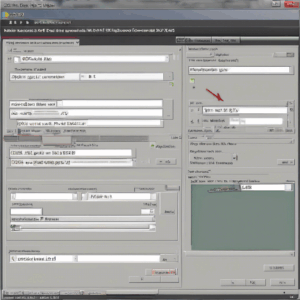Google Index Checker | Check if Google has Indexed Your Website or Domain Name
Understanding Google Indexing
Google indexing is a critical process that enables the vast world of the internet to be searched efficiently. At its core, Google has a sophisticated web crawler, often referred to as Googlebot, that systematically visits and evaluates webpages across the internet. This automated program analyzes the web pages that receive permission from site owners to be crawled.
One key factor determining whether a page will be indexed is the absence of a “no-index” tag, which acts as a directive for Googlebot to avoid including that page in its index. After crawling, Google stores and organizes the information in a structured manner, creating a comprehensive index. This ensures quicker retrieval of data when users perform searches, making the web more navigable.
What is Google Index Checker?
The Google Index Checker is a powerful online tool designed for website owners, SEO professionals, and digital marketers to evaluate the indexing status of their websites. By inputting the URL of your website or a specific webpage into this tool, you can gain valuable insights regarding which pages Google has indexed.
But that’s just the tip of the iceberg. The Google Index Checker provides extensive data, including:
– Number of Indexed Pages: Discover how many of your website’s pages are included in Google’s search index.
– Crawled Pages: Understand how many pages Googlebot has visited on your site.
– Backlinks: Gain insights into the number of backlinks pointing to your site, helping you gauge its authority.
– Robots.txt Issues: Identify pages that might be blocked from indexing due to directives in your robots.txt file.
Why is Google Indexing Important for SEO?
Google indexing serves as a foundation for effective search engine optimization (SEO). The number of pages indexed from your website has significant implications for your online presence. More indexed pages can lead to greater visibility in search results, ultimately driving organic traffic to your site. Here are several reasons why Google indexing is essential for SEO:
Increased Visibility
If your web pages aren’t indexed by Google, they will remain invisible to users conducting relevant searches. The primary purpose of web indexing is to enhance visibility — when a page is indexed, it can show up in search results, making it accessible to potential visitors.
Improved Rankings
Many SEO experts agree that the volume of indexed pages has substantial implications for your website’s overall authority. Google often perceives websites with a broader range of indexed pages as more credible. Therefore, the more pages that are indexed, the higher your site is likely to rank on search engine results pages (SERPs). This is a crucial aspect for businesses looking to establish themselves competitively online.
Faster Crawling
Once a page is indexed, Googlebot is likely to return for future crawls more frequently. This ongoing evaluation ensures that any updates or changes to your content are reflected in Google’s database, keeping your website relevant in the ever-evolving digital landscape.
Better User Experience
An effective indexing strategy can enhance user experience significantly. When Google indexes all relevant pages of your website, users find it easier to access the information they’re seeking. A well-structured index reduces the time users spend searching for information, leading to a more satisfying experience overall.
How to Use the Google Index Checker Tool?
Using the Google Index Checker tool is straightforward, even for those who may not be tech-savvy. Follow these simple steps to get started:
1. Enter Your Website URL or Domain Name: Whether you include “www” or not, simply type your website address into the designated search bar.
2. Click on Submit: Once you’ve entered the URL, hit the submit button to initiate the indexing check.
3. Get Results: You will receive immediate feedback on the number of pages indexed by Google, along with additional insights about potential issues your site may face.
This tool can help highlight problems such as:
– Blocked Pages: If certain pages are preventing Googlebot from crawling, you may need to revisit your robots.txt file or Meta tags.
– Unindexed Pages: Understanding which pages aren’t indexed can guide you to optimize those specific pages further.
Tips for Improving Your Website’s Indexing Status
To maximize the visibility of your website and improve its overall indexing status, consider implementing the following strategies:
Optimize Your Content
Creating high-quality, relevant content is vital. Google prioritizes content that delivers value to users. Ensure your pages are well-structured, easy to read, and answer specific queries effectively.
Use an XML Sitemap
An XML sitemap acts as a roadmap for search engines, helping them discover all the important pages on your site. Submitting this sitemap to Google Search Console can enhance your chances of getting more pages indexed quickly.
Check Your Robots.txt File
Ensure that your robots.txt file isn’t blocking essential pages from being indexed. This file should clearly list which areas of your site Googlebot can and cannot crawl.
Update Content Regularly
Keeping your website’s content current can enhance its relevance. Regularly updating pages can prompt Googlebot to crawl those pages more frequently, aiding timely indexing.
Build Backlinks
Generating high-quality backlinks can bolster your site’s authority and encourage Google to index your pages more favorably.
Common Issues Affecting Indexing
While using the Google Index Checker, you might encounter various challenges that could hinder changes to your indexing status. Here are some common issues and how to address them:
If a webpage is tagged with a no-index directive, it prevents Google from indexing your content. Make sure to remove this tag if you want a page to be included in search results.
Duplicate Content
Google may choose not to index duplicate pages to avoid redundancy in search results. Focus on creating unique, original content to improve your indexing chances.
Loading Speed
Website loading speed is also a ranking factor. Slow-loading pages may negatively impact user experience, which can lead to lower prioritization for indexing. Utilize optimized images, minimize JavaScript, and consider employing caching techniques.
Conclusion
In the ever-changing landscape of the digital world, knowing how to leverage a Google Index Checker can be a game-changer for your website’s SEO strategy. Understanding the nuances of Google indexing not only aids in increasing visibility but also helps improve rankings, ensures timely updates, and enhances user experience.
By incorporating best practices and utilizing tools such as the Google Index Checker, website owners can proactively address indexing issues and improve their site’s search engine presence. Regular monitoring with this tool can provide valuable insights, paving the way for effective optimizations that can attract more organic traffic to your site. Embrace the power of indexing, and watch your online visibility grow!










